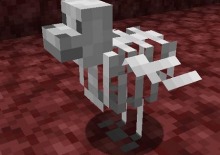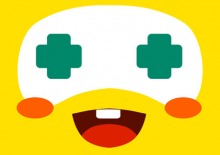Advertisement
Side Effects
Side Effects presents a turn-based survival scenario where two individuals participate in a risky experimental drug trial. The core loop revolves around ingesting pills with unknown effects, forcing players to make strategic decisions based on limited information. Each turn may result in healing, weakening, or even immediate death, depending on the pill taken. The challenge is survival and outlasting your opponent through careful observation, probability judgment, and effective item use. The entire experience is grounded in a sterile, unsettling environment that highlights the game's psychological edge.
Core loop and evolving tension
At the heart of the gameplay is a simple premise: choose a pill, take a risk, and observe the outcome. But with only three lives—or mistakes—before elimination, every move carries weight. Each round introduces new pills, some familiar, others unknown. The game does not reveal exact effects, requiring players to track past outcomes and infer patterns. As matches progress, the tension builds. The opponent adapts, sometimes copying your moves, other times avoiding high-risk options. This evolving dynamic transforms a basic mechanic into an increasingly complex battle of wits and timing.
Decision-making tools and player resources
To give players more control, the game introduces items that can shift the balance in subtle or dramatic ways. These include:
· Vaccines that provide resistance against harmful pills
· Scanners that offer a glimpse of pill effects
· Mouth clamps that prevent the opponent from acting
· Swaps that allow exchanging pills before ingestion
· Antidotes that reverse certain effects if taken in time
Managing these tools becomes crucial, especially when resistance levels are low. Proper timing and strategic restraint often mean the difference between survival and failure.
Atmosphere and visual direction
Visually, Side Effects maintains a minimalist design with heavy emphasis on cold, clinical aesthetics. The sound design supports this tone—quiet rooms, echoing clicks, and subtle sound cues that emphasize isolation and risk. The sparse use of animation keeps attention focused on the core mechanic: the act of choosing and reacting. Backgrounds and interface elements reinforce the feeling of being part of a detached medical experiment, creating a surreal tension that grows with each decision. The environment doesn't distract—it intensifies the sense of uncertainty and risk.








































































































